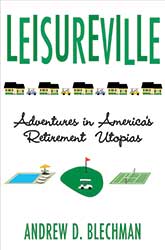Few may remember it, but before the advent of Social Security in the 1930s and Medicare in the 1960s, the old were widely viewed as a spent force. Nobody talked about happy retirement, in part because, these were people who remembered only too well the Depression. Few looked forward to leisure worlds because the poor house was too recent in so many people’s minds. Before old age entitlements, tending to the old was viewed as the job of the family. If you didn’t have a family, then it was charity—you joined the begging class. And even if you did have a family, you lived knowing that the young and middle-aged couldn’t wait to get rid of you.
The same is more or less true today. Some days it seems the entire city of Washington, DC, the nation’s capital, is on a mission against the old. Of course, nobody would ever say that. But there is a war against the old going on here in the form of a vigorous, largely uncontested attack on entitlements—a fighting word for conservatives and conservative Democrats who simply can’t stand Roosevelt’s New Deal, Johnson’s Great Society, and everything they stood for.
In his book The Making of an Elder Culture, recently published by New Society, Theodore Roszak, the cultural historian who more than three decades ago wrote The Making of a Counter Culture, sets out some of the grim history of old people in American society, and in doing so places elders within our current political world.
The old were in fact the worst victims of industrialism, primarily because they were not deemed worth saving. They belonged to that class of unwelcome dependents called the impotent poor—those who could not provide for themselves…as comfortable as many middle-class elders may be today, they share with all older people a long sad history of bleak mistreatment they would do well to remember. For generations the old have suffered wrongs inflicted on them by harsh public policy and often by their nearest and dearest…in the modern western world where the old have been seen as the claim of the dreary past upon the bustling forces of progress.
In the early days of the industrial revolution, Roszak writes, “aged workers became poor. The workhouse and county home were little better than the concentration camp. They were fed gruel, bedded down on straw or bare wood…they had no place to turn save for their children…They were pictured as withered, toothless, bent, lean.” You must remember that as recently as 40 or 50 years ago, there was no senior lobby. The political pros never talked about a senior vote. Today all that has changed—yet Roszak sees in today’s entitlement wars a serious threat to the well-being of elders.
In the same way that organized labor was once regarded as a potentially tyrannical force able to achieve its own selfish ends, entitlement critics began characterizing seniors as a threat to the democratic process…
Nobody of any political stripe wants to risk the charge of granny-bashing, but the facts are clear. In the United States, gaining even modest degrees of security in retirement has been a struggle against business leaders, political conservatives, and free market economists for whom money is the measure of all things.
In his book, Roszak envisions a society in which rather than cutting social programs for the old, we will extend them to younger people. No one would resent Medicare, for example, if we had universal health care for Americans of all ages. He sees a future where the old and the young join to create a new world devoted to common humane goals: Ending poverty at all ages, assuring education—laying the planks of a new society on the New Deal and LBJ’s social welfare project. Such ideas face an uphill battle in today’s political culture—but are no less inspiring for that fact.
This post also appears on Jim Ridgeway’s personal blog, Unsilent Generation.














